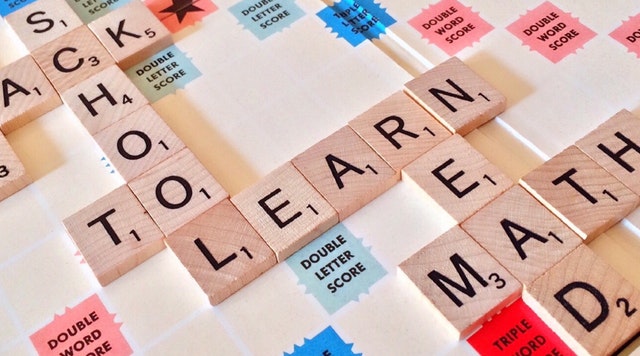

Whilst I haven’t necessarily always understood the importance of education all my life, I have always been a lover of language. I remember my mum teaching herself Russian and the Cyrillic alphabet when I was younger and she subsequently decided to take this further and attend night school at Park Lane College. After asking her why she was studying Russian, I remember her laughing and saying- “Why not?” I also remember her insisting on us reading any Bronte novel and taking us to Haworth to share a love of literature- even if, at that time, me and my siblings just wanted to go to the sweet shop to buy pots of kali (that’s sherbet in case you were wondering)! She wasn’t an academic, but she remains to be one of the cleverest people I know and I think it is almost by accident. She has become this way because of language, not because of academia or educational qualifications.
See, my mum left school with a good handful of ‘O-levels’, two of which were in languages and one of those was English Literature, but she knew she wouldn’t do anything with this small grasp of success (unless you count becoming a typist in a typing pool in the 1970s, learning how to type at break-neck speed and learning shorthand- coincidentally I actually do think this is a huge success!) But, she certainly did have an even wider impact- she passed on her enjoyment of language to her children! I can’t help but think her innate passion and enjoyment for language and literature fuelled my interest, but that’s not to say I am discrediting any other influences of course!
As I grew older, my twin sister and I used to sit and read aloud to each other before bed (sometimes while listening to radio ‘phone-in’ broadcast ‘Jezza’s Midnight Confessions’ and being appropriately exhausted at school the next day). We loved sharing a good book, weirdly playing out our teenage years as the wonderful Bronte sisters must have done too up in Haworth. We weren’t the prodigies that they were. In fact, we were two very average ‘students’, who did ‘OK’ in primary school and developed in line with average expectations at key stage three. But, when we reached secondary school, we matured and started to develop faster. I put this down to our love of – and complete commitment to language and literature, which in turn developed our literacy. Not that academic success matters to all, but it did afford us both some brilliant experiences later in life and allowed us to both become English teachers.
As a student, I remember one day rather casually using the term ‘intertwined’ when explaining the characters of Romeo and Juliet in a year 9 English answer and my teacher at the time stopped me mid-sentence and said: ‘Where did you get that word from?’ I said in response (in a thick Yorkshire accent- so thick that most people have mistaken it for a Hull accent, strangely): ‘Dunno, must’ve read it somewhere!’ Now, I know that the word ‘intertwined’ isn’t particularly ground-breaking, but the fact I had the confidence to use it really WAS! I used it confidently, correct in context and without being convoluted or conscious with my vocabulary (like I am now). It was so familiar to me, it became part of my casual repartee. And I LOVED the reaction from my English teacher, even though I now see he was just trying to praise a small glimmer of my work. That doesn’t really matter, but my self-confidence grew as a result.
This brings me onto the power of language, words and praise in teaching. As teachers, we have to raise our aspirations for the young people that we teach through the use of exciting and interesting words. We need to instil a love of vocabulary and an excitement for language in the students that we teach. We can do this through so many ways: modelling, oracy, words of the week, READING, rapping (not tried this myself, admittedly), poetry, creative writing, graphic illustrations, picture books and so much more! Even as science, maths or geography teachers, it is our collective responsibility (that word incidentally makes it sound like an onerous task) to impassion the young people that we teach through language. Wouldn’t it be amazing if every child has fond memories of their growth as a lover of language like I do? No matter what experience they have at home, we have the ability to create a positive ethos around vocabulary development, reading and language.
So, let’s TALK more, READ together and MODEL the use of great words that will inspire and create confidence.